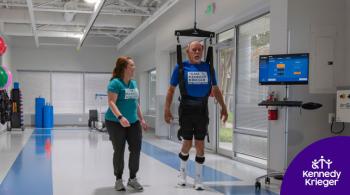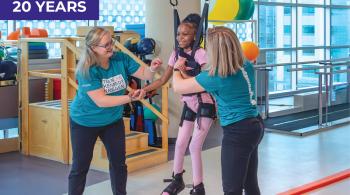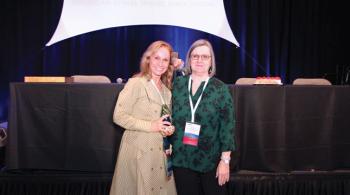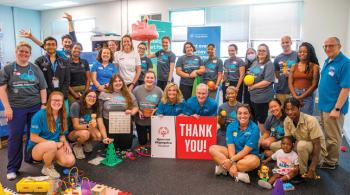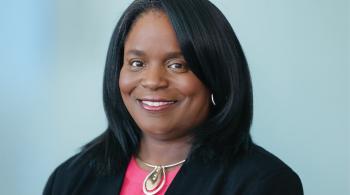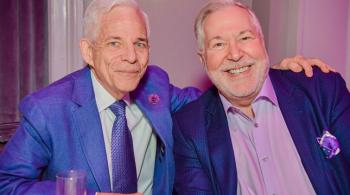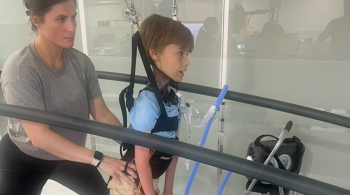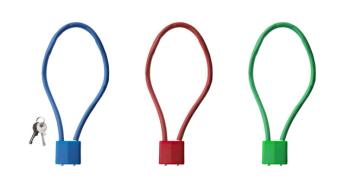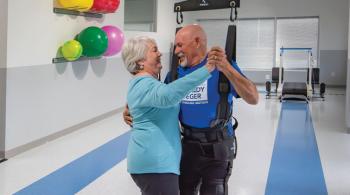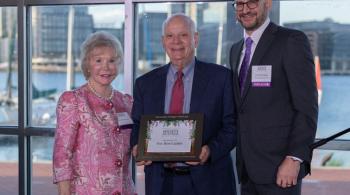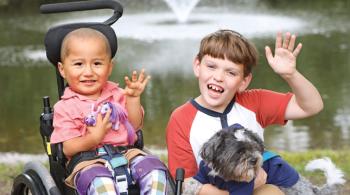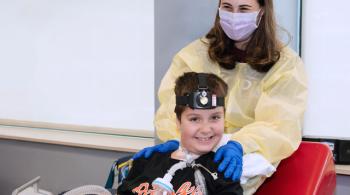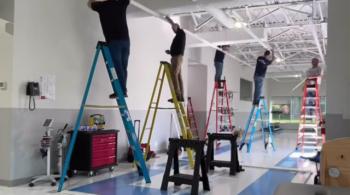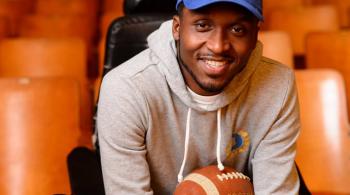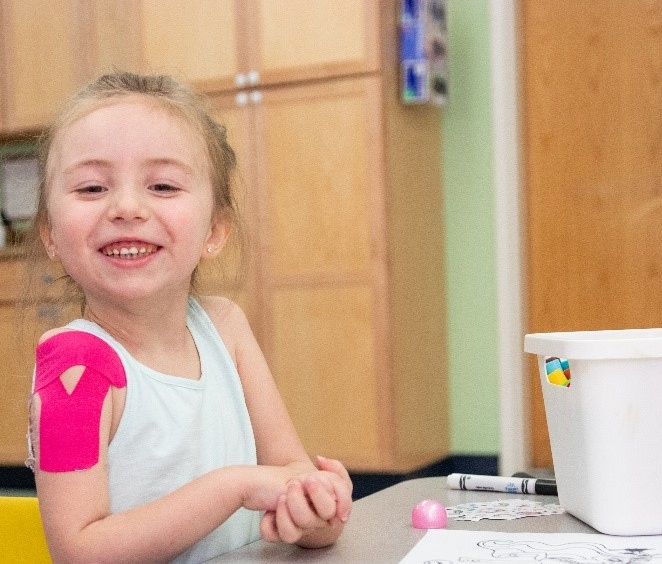
Ryleigh is a determined five-year-old who has worked hard over the past year to reverse the effects of acute flaccid myelitis, which has caused paralysis.
In honor of Physical Therapy Month, Ryleigh's physical therapist, Lia Brunn shares a story about this inspiring little girl.
Dr. Jacqueline Stone: Today I am joined by Lia Brunn, an occupational therapist in the Spinal Cord Injury Program at Kennedy Krieger Institute.
Lia Brunn: I work in the Spinal Cord Injury Department at Kennedy Krieger, where we see action daily as we work with kids adjusting to what is often a sudden change in their ability to simply engage in childhood. We see them adapt quickly, as they put in an incredible amount of work to get stronger and to get back to those meaningful kid activities. This is true for so many of our kids, but it is especially true for Ryleigh.
Ryleigh is a 5-year-old girl with acute flaccid myelitis. She was your typical, independent and active 4-year-old when she became sick with a respiratory illness that led to paralysis. She came to Kennedy Krieger soon after, first at our inpatient hospital and then to our outpatient clinic.
Over the past year, she averages about four hours of therapy a day, three days per week. Twelve hours a week that she has to give up time just being a kid, to come to therapy to do really hard work. She never really complains about that, as long as lots of barbies are incorporated into all that hard work, of course.
Ryleigh has a can-do attitude. It could be really easy for her to say, “Hey, I’m 5 and getting dressed or transferring into my wheelchair or brushing my hair, those are all really hard for me now. I just want my mom to do them for me." But Ryleigh is the absolute opposite. She is the kid who if you turn your head for a second, she’s going to figure out how to do a full wardrobe change before you turn your head back.
I’m constantly in awe as I watch her do new things. She’ll do any movement that she couldn’t do before and I’ll say something like, “Ryleigh, did you know your arm could do that?” Usually she’s unimpressed and just says something like, “Yeah, well, I just did it."
Seeing her figure out how to engage in her environment is inspiring. She’ll try to do a task and she’ll complete as much of it as she can independently and then, if needed, she’ll ask for help. It’s just a great reminder that when things go really hard, you just have to keep working at it and keep trying different strategies, even if that includes asking for help, and you’ll find a way to reach your goal.
Dr. Jacqueline Stone: Inspiring Moments is produced for WYPR by Kennedy Krieger Institute. I am Dr. Jacqueline Stone.

